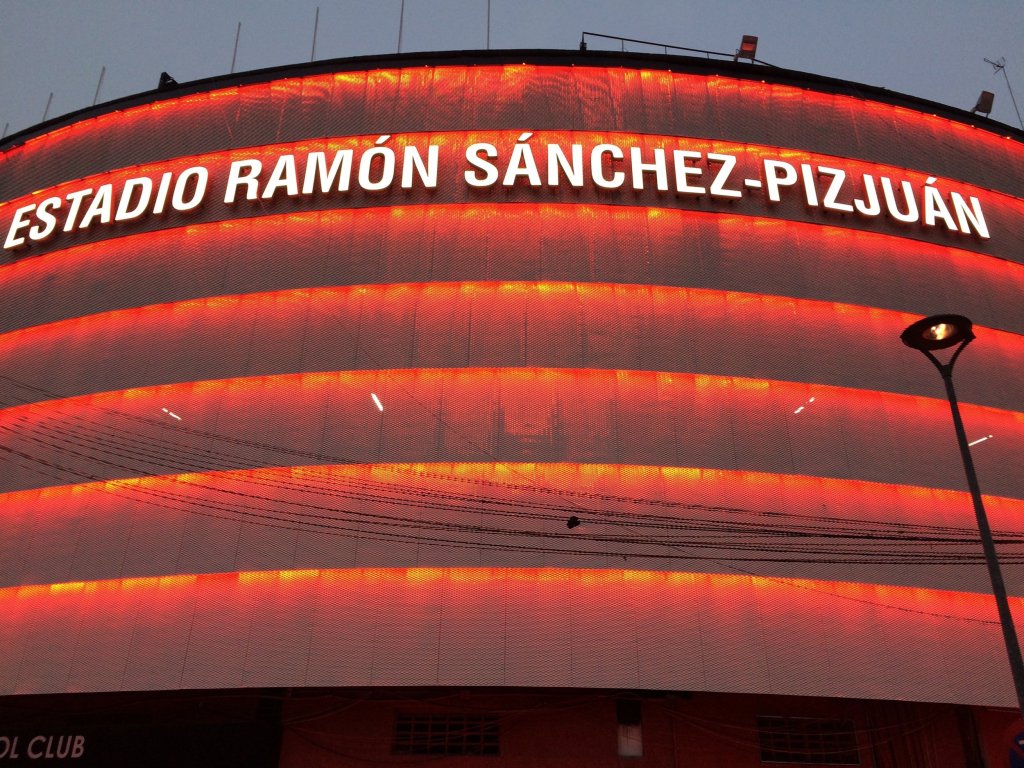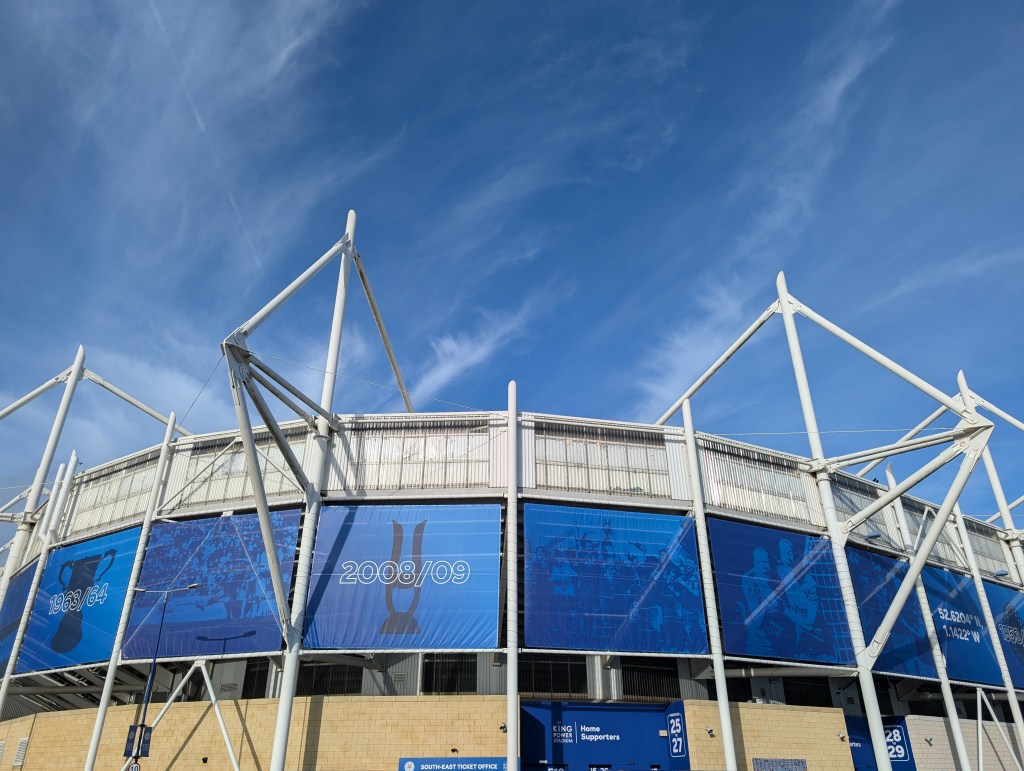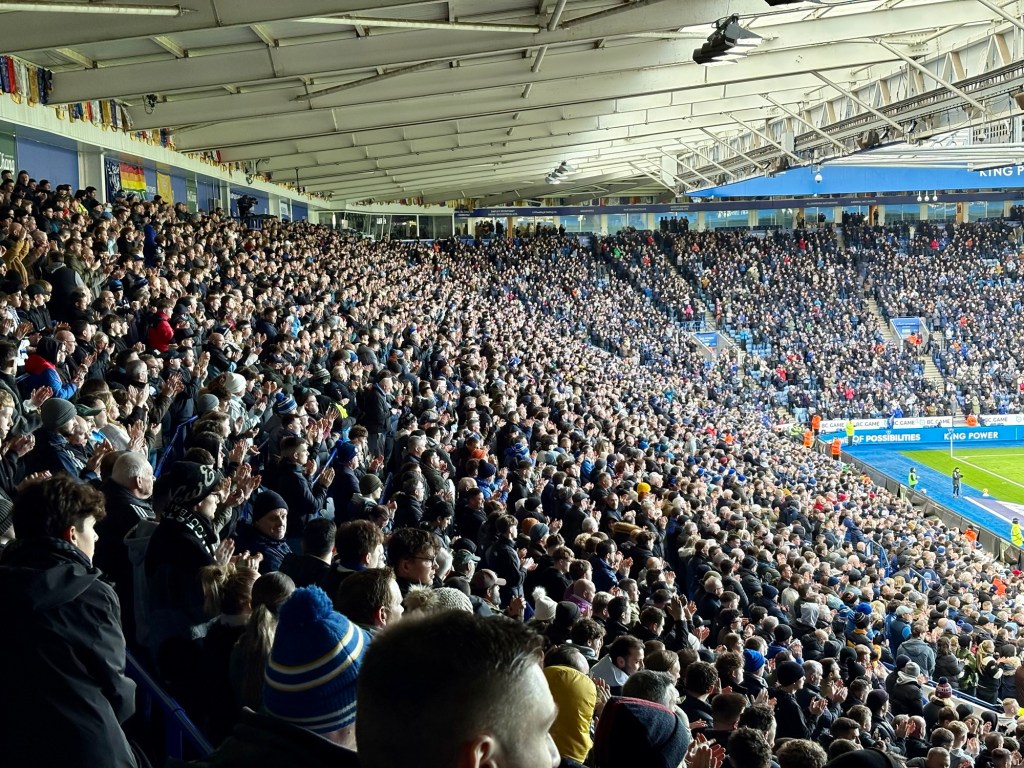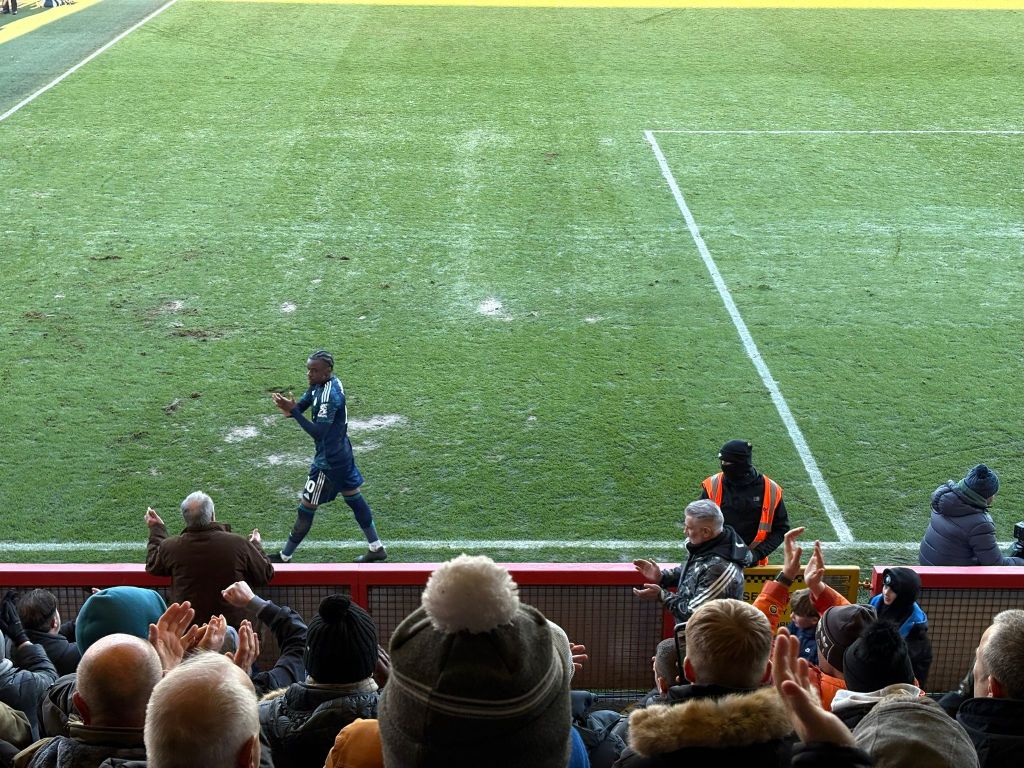There’s been a lot of talk about Pep Guardiola since Enzo Maresca took charge at Leicester City. Maresca’s first few games are reminding David Bevan of a night when Guardiola won and lost in Seville, long before Leicester visited for a Champions League adventure.
When the referee blew the final whistle to bring to a close the greatest display of football I’ve ever seen, the team responsible, having won the game, trudged from the pitch disconsolately while opposition fans celebrated wildly.
The date: 13th January 2010. The venue: Ramon Sanchez Pizjuan, Seville. The result: Sevilla 0 Barcelona 1 (Aggregate: 2-2, Sevilla win on away goals).
Halfway through Pep Guardiola’s second season in charge, Barcelona were adapting to the presence of Zlatan Ibrahimovic up front. It didn’t work out in the end, despite Ibrahimovic ending another title-winning season passing the 20-goal mark, and that night in Seville summed up why.
With Sevilla 2-1 up from the first leg, Barcelona set about their task and scored twenty minutes into the second half but still trailed on away goals. As their desperation increased, it seemed inevitable their intricate play would become more frantic with longer balls and crosses into the box for their giant centre-forward.
This is not what happened. In fact, with six minutes left and Barcelona in the midst of fighting against a cup exit, Ibrahimovic was substituted. Guardiola’s plan B, his version of desperation, was simply for his team to do the exact same thing – more quickly.
As the game ticked into injury time, Barcelona’s players appeared on fast forward. They zipped around the pitch at warp speed, yet still playing their one and two touch possession football. They didn’t score again, but it was the most beautiful football imaginable.
The birth of the idea
I’ve been thinking about this game a lot lately, given that it changed my concept of what a plan B looks like. Forget for a second that it didn’t work on this occasion, because that’s not really important in the grand scheme of things. There was an idea, the players bought into it and didn’t deviate from it even when under pressure. You can see why it springs to mind now.
Enzo Maresca wasn’t on the pitch in Seville that night. He’d left Sevilla 18 months previously for Olympiakos. But it was the kind of game Maresca talked about enduring, and subsequently analysing, in his recent interview with Guillem Balague.
“It all started 15 years ago I think. I was still a player and I faced Pep’s Barcelona with Sevilla and then with Malaga. Facing them, I realised that something different had happened.
“I fell in love immediately with that idea. That was 2007 or 2008. I started to analyse the game and tried to understand that team. Then Pep brought his idea to Germany and now England. It all started from that time when I was still a player. I realised it was not the same things happening. It was completely different. I didn’t play under Pep, but I faced him many times.
“On one side, it was good, it was nice. It was completely different, something new. I’m curious so I wanted to know about it. For the other side, it was bad because we were just running behind the ball.
“When we recovered the ball, we immediately lost it again. They recovered it immediately. I fell in love with that idea while facing it. That was the day I started to think about trying to understand it all. I wanted to analyse it.
“From there, it’s step by step. I started to think as a manager.”
Fatigue factor
It’s not quite the same level but you can imagine opposition players having similar thoughts during our recent encounters. Opposition fatigue has clearly aided us to this point and that’s been a major plus point of our new approach. While some fans have struggled to buy into Enzo’s way, others are already noticing the side benefits. In the stands at Rotherham at half time, fans were talking about how the home side would tire by the end. We already have the evidence.
Coventry, the best team we’ve faced by some distance, eventually tired and Mark Robins said afterwards he’d had to make substitutions he didn’t want to make. Of the lesser sides, Huddersfield had some joy in going man-to-man, Cardiff did a decent job of nullifying the influence of Harry Winks and Rotherham’s energy threatened to spook us until the final stages.
On Saturday we seemed to take the safe option a lot and, while we’ve seen this kind of thing throughout games, Callum Doyle’s magnificent crossfield ball to pick out Kasey McAteer looked like the next part of a process. Doing the same thing but with a bit more pace, a bit more urgency. Cesare Casadei’s quicker passing and decoy run into the box helped too. Pushing and pushing until there’s a breaking point. Then taking the opportunity.
The question is whether Maresca will change when we come under more pressure, or opponents figure out a way of beating the system. This is not to say we’ll definitely beat Hull but we’re about to come to one of the most telling points of the season with the upcoming trips to Southampton and Norwich in the space of five days. This is, on paper, by far the most difficult double header of the season.
It will also be the first time opposition teams may try to have more of the ball. In our first four league games, our possession percentage numbers have been 65, 69, 65, 63. It’s hard to imagine we’ll stay in the sixties at Southampton in particular. So we may see more of Ricardo at right-back rather than the inverted midfield position he’s assumed for the majority of the season so far.
This was a brief concession to the plan on Saturday. After McAteer’s second goal, James Justin and Hamza Choudhury were introduced in place of the two-goal hero and Kiernan Dewsbury-Hall. Ricardo stopped inverting, Choudhury sat at the base of midfield alongside Winks and Justin played on the right of midfield. Perhaps this is closer to what we’ll do from the start in a trickier away game, but it’s still hard to imagine at this stage.
Forward planning
You get the sense Maresca would have been almost equally happy with the first four games of the season even had we not scored late winners in each one. Such is his focus on “the idea” and the long-term aim of drilling this into his players rather than abandoning it in search of a winning goal.
This is clear in the like-for-like substitutions we’ve seen so far. Rather than playing Jamie Vardy and Kelechi Iheanacho together to provide a greater goal threat, it’s been one or the other as there’s no room for both in Maresca’s setup.
In that Barcelona game in Seville, Ibrahimovic was replaced by Bojan Krkic, then a highly promising young talent who seemed unlikely to end up playing for Stoke by the age of 24 and retiring at the same time as Ibrahimovic. Substituting a self-proclaimed legend of the game when needing a goal was the kind of move that later saw Ibrahimovic and Guardiola fall out spectacularly.
But the system won out and results backed Guardiola’s approach. Before long, Pep decided to sell Ibrahimovic and move the greatest footballer of all time up front instead. That worked out okay.
Leicester appeared to have our own centre-forward conundrum this summer, with three strikers who should be too good for the league and one position in the team. Thankfully, we seem to have hit the sweet spot early on with Iheanacho playing between 59 and 76 minutes of the past three league games before being replaced by Vardy.
Even if neither have scored yet, it’s clearly working. Iheanacho fits the system and is capable of the kind of assist he notched at Rotherham, while even an ageing Vardy remains the cliched “last player a defender wants to see coming off the bench”. The collateral damage is Patson Daka, who may yet prove himself at a higher level but doesn’t fit the system. The system always wins. At the moment, so do Leicester City.
Viewpoint
#block-d1b1c404bc92805adf28 {
box-sizing: border-box;
height: 100%;
padding: 3% 3% 3% 3%;
border-radius: 0px 0px 0px 0px;
}
document.getElementById(‘newsnowlogo’).onclick=function(){ window.open(‘https://www.newsnow.co.uk/h/Sport/Football/Premier+League/Leicester+City’,’newsnow’); }; document.getElementById(‘newsnowlogo’).style.cursor=’pointer’; document.getElementById(‘newsnowlogo_a’).style.textDecoration=’none’; document.getElementById(‘newsnowlogo_a’).style.borderBottom=’0 none’;










David Bevan
David Bevan
David Bevan